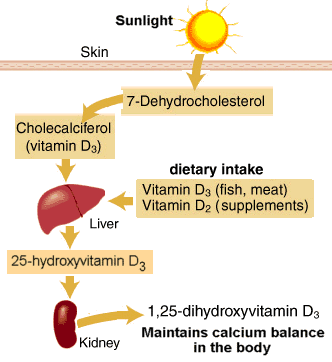The kidneys are essential organs in the body. Without them we are unable to function. Many of us if asked what the functions of the kidneys are, we will say it is for the removal and elimination of waste from the body into urine.
Yes, the kidneys are important for excretion, however they play more vital roles to life than we realize. The kidneys perform the following functions:
1. Regulation of Arterial Blood Pressure
The kidneys excrete a great amount of sodium and water. They secrete an enzyme called rennin that activates the renin-angiotensin system that control blood pressure and sodium concentration.

2. Regulation of water and electrolyte balance
In order for our bodies to maintain a balance, the amount of water and electrolyte we take in must be the same amount we excrete. If we take in more than we excrete, the kidneys will work to regulate the excess and bring the body to a balance.

3. Excretion of metabolic waste products and foreign chemicals
Our bodies, each day, form waste products that it does not need. These products include urea, creatinine, uric acid and waste products from the breakdown of hemoglobin that give the urine the color it has.
If these products are not eliminated from the body as fast as they are produced they become very harmful to the body. The kidneys remove these waste products so, our body can function normally.
4. Regulation of Red Blood Cell Production
Our kidneys secrete erythropoietin, a hormone which stimulates the production of red blood cells in the body. If the kidney is removed or severely damaged, then we may not be able to produce RBC and severe anemia will develop as a result of the decrease in the production of erythropoietin.
5. Regulation of Vitamin D Production
Our kidneys produce the active form of vitamin D, calcitriol. We get vitamin D from sunlight or from ingested vitamin. These types of vitamin D are in their inactive form. The kidneys are needed to convert them into their active forms.

The active form (calcitriol) is necessary for normal calcium absorption in the bone. Therefore, if the kidneys are damaged there will be a decreased level in calcitriol which then will lead to a reduction in calcium absorption, and thus low calcium in the bodyleading to bone disorders.
6. Gluconeogenesis
If we should stop eating carbohydrates (our main source of glucose) for a day, our bodies would begin to form new glucose from the amino acid in the proteins we intake. This process is known as gluconeogenesis.
So, when the kidneys are damaged, this function is crippled, and this can cause death within a few days.
7. Regulation of Acid Base Balance
The kidneys are able to perform these functions through the work of the nephrons and the collecting tubules.
In the next section we will discuss the role of the nephrons.

Very nice site, even for an occasional review of basic Medicine topics. Thanks. Good luck on your STEPS.